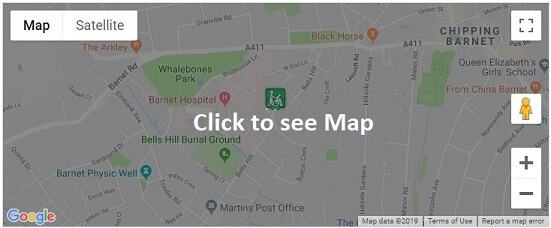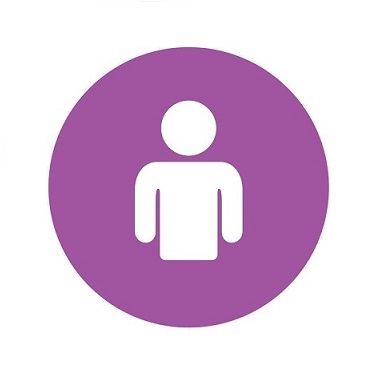| Loading.... |
Nuffield Health, Shrewsbury Hospital Longden Road, Shrewsbury, Shropshire SY3 9DP Phone : Web :https://www.nuffieldhea.. Email :chooseandbook@nuffieldhea.. Rating: 
(60) CQC : 

- Provider Information
- Nuffield Health, Shrewsbury Hospital is a private care provider near Shrewsbury and provides a list of private procedures including Cataract Surgery with prices available to compare on BestcareCompare. This provider has 55 reviews with a rating of 4.5 stars out of 5 and a CQC rating of Good.

Procedure Information
Preparing for your cataract operation Before you come into hospital for your operation, you will be asked questions about your health by one of our nurses. Further ‘pre-assessment’ questions may be asked over the phone, or you might be asked to come into the hospital for some simple tests, such as a blood test or a test on the heart called an ECG (Electrocardiogram). Please let us know if you are taking any regular or herbal medication. Be sure to bring your medication with you on the day of your operation in the original containers. If you do take prescribed medicine on a regular basis, we will give you specific advice about continuing your medication, and what to do on the morning of your operation. If you are a diabetic you’ll be given instructions about your medication on the day of surgery and told when to stop eating and drinking. It’s particularly vital you tell us if you are taking any type of blood thinning medication (anticoagulant). Medication of this kind can make your blood clot more slowly. We need to ensure your blood is clotting normally before we operate. What happens during cataract surgery? Cataract surgery usually takes around 45 minutes. It’s often performed under local anaesthetic and you should be able to go home on the same day. Patients often worry about the thought of having an eye operation awake, but cataract surgery under local anaesthetic is safer than being put to sleep. You may feel some pressure and see some movement or bright lights, but you won’t feel any pain or see anything in detail. Preparing your eye for surgery Your surgeon will prepare your eye by placing eye drops in it to help relax the muscles and widen your pupil. They’ll also put local anaesthetic drops and may inject close to your eye with a local anaesthetic. You may feel some discomfort, pressure or stinging very briefly as the anaesthetic gets to work. Once your surgeon is happy that you don’t feel anything in your eye, the operation can begin. During the operation Your surgeon will make a tiny incision (cut) in your cornea (the outer layer of your eye). Using a tiny probe that emits ultrasound waves, the surgeon will break up the cataract and remove the pieces from your eye. (This is called phacoemulsification). Your surgeon will replace the cataract with a new permanent lens implant. After your cataract surgery Once your operation is over, you’ll be taken to the recovery room You will have a protective pad and a plastic shield covering your eye for a few hours The local anaesthetic does cause numbness, but normal sensation will return in a few hours Your eye may feel a little bit uncomfortable but regular pain relief is usually enough to treat this After the cataract operation, you will be given more eye drops containing a steroid, to help reduce inflammation, and an antibiotic to help stop any infection Try not to touch or disturb your dressings as this can introduce infection If you notice any discharge or have any pain, don’t hesitate to speak to one of the nurses After you’ve recovered from the effects of any anaesthetic you can go home. How long does it take to recover from cataract surgery? Most patients are able to resume light activities, for example housework and cooking, when they return home. It may take several weeks for your eye to fully heal. Driving after cataract surgery Driving is dependent on your vision. As long as your eyesight meets DVLA standards, then you can drive. Your surgeon will discuss driving with you before you leave hospital. It may take anything from a couple of day to several weeks for your eye to fully heal and your eyesight to go back to normal. If you are in any doubt about your insurance cover, it’s best to contact your insurance company. Time off work after cataract surgery Cataract surgery patients usually make a full return to work. The amount of time off work you need depends on the type of job you do. Physical jobs will require longer time off work – up to several weeks – compared to a desk-based job. If you’re waiting for new glasses after your cataract surgery, this may also increase the amount of time off work you need. Tips to help improve your recovery Remember to arrange for someone to drive you home You may find wearing sunglasses comfortable as your eyes may be sensitive to sunlight You may need help at home for the first 24 hours You should avoid excessive bending, lifting heavy objects and doing any strenuous activity for four to six weeks after the operation Avoid swimming for 4 to 6 weeks Your eye may be red and bright lights could be uncomfortable You can shower or bath and wash your hair after 48 hours, but be careful not to get soap and water in your eye It’s important that you don’t rub your eye To prevent rubbing your eye during sleep, you will need to use the plastic shield taped over your eye at night for one to two weeks Keep the plastic shield clean by washing it with soap and water If you go outside, protect your eye with glasses to avoid anything such as dust or grit blowing into it If you find that your eyes become sticky, you can gently wipe the eyelids with cotton wool dampened in cool water that has been boiled. You will be prescribed eye drops to use when you get home. These will have been tested to make sure they are free from germs. To keep them in good condition, please make sure you: Keep the bottle tightly closed when not using the drops Keep the drops in the refrigerator if you are told to Do not put the dropper down on any surface Do not let the nozzle of the dropper touch your eye or fingers Never lend your eye drops to anyone else Dispose of your eye drops after four weeks. (When you open the drops, write the date on the bottle, so you know when to throw them away). Using your eye drops Before using your eye drops, wash your hands thoroughly Tilt your head backwards, look up and pull down the lower eyelid until there is a small pocket Squeeze the dropper bottle and allow one drop to enter the pocket between the lower lid and the eye Try not to let the dropper touch your eye or eyelid Close your eye and blink several times, but do not rub it. Possible complications and risks As with all surgery, there are risks involved. Your consultant will be well informed about all of these and can talk you through them. General complications from surgery: Haemorrhage Infection - Antibiotic drops are prescribed after surgery to protect against infection which has the potential to cause severe loss of vision Specific complications of cataract surgery may include: Aching of the eye Bruising of the eyelid and double vision resulting from local anaesthetic Blurry vision (full healing will take several months) Thickening of the lens capsule (the casing which holds the lens in place). This can be corrected with laser surgery. Macular oedema (accumulation of fluid at the central retina) Floaters - seeing small shapes floating in your vision Retinal detachment which can result in severe loss of vision if surgical correction is not successful Damage to the lens capsule (casing) making it difficult or impossible to position the lens implant

Hospital Consultants Specialties : 
Dr. Paul Haigh Longden Road,Shrewsbury,SY3 
(0) More Info Ophthalmology 
Dr. Suresh Sagili Longden Road,Shrewsbury,SY3 
(0) More Info Ophthalmology 
Dr. Palpandian Viswanathan Longden Road,Shrewsbury,SY3 
(0) More Info Ophthalmology 
Dr. Garikapati Prasad Rao Longden Road,Shrewsbury,SY3 
(0) More Info Ophthalmology 
Dr. Robert Dapling Longden Road,Shrewsbury,SY3 
(0) More Info Ophthalmology 
Dr. Bal Manoj Longden Road,Shrewsbury,SY3 
(0) More Info Ophthalmology 
Dr. Andrea Elkan Longden Road,Shrewsbury,SY3 
(0) More Info Ophthalmology 
- Care Provider Location and near by additional services


Patient Ratings Excellent 32Good 25Ok 2Poor Terrible 1Patient Reviews
Nuffield Health, Shrewsbury Hospital
By: Rachel Pollard Rating:.. 
Sep 8 2023 I was an inpatient for surgery and the overall temperature in the ward was incredibly hot due to good weather outside, all in patient rooms and areas need individual air conditioning units to control the temperature as even a bar of chocolate in my bedside melted, it was particularly hot for all the nursing staff working too. Fly screens at the bedroom windows would stop all the insects from entering the rooms attracted by any night lights. The mobile CT and MRI scanner lorries parked outside were continuously noisy throughout the night making whirring noises which echoed around the car park. All staff I met were attentive, caring and extremely helpful making my stay a really positive experience.
Nuffield Health, Shrewsbury Hospital
By: michael Kenneth antcliff Rating:.. 
Nov 7 2022 I have just had a partial thyroid removal. the whole experience from initial consultation to the actual surgery involved a number of staff. from the lady who emptied the bin to the surgeon who carried out rhe procedure was exceptional. nothing was too much trouble. it would be difficult to pick out one member because they were all exceptional. I would have no hesitation of returning to Nuffield should the need arise.
Nuffield Health, Shrewsbury Hospital
By: Linda Black Rating:.. 
Mar 26 2022 Thank you all so much for the amazing care I received yesterday. Everyone on the team from arrival to going home looked after me with the utmost kindness, care, professionalism and good humour. The experience couldn’t have been better. Many, many thanks to you all - you’re a great team!

- Write a Review







